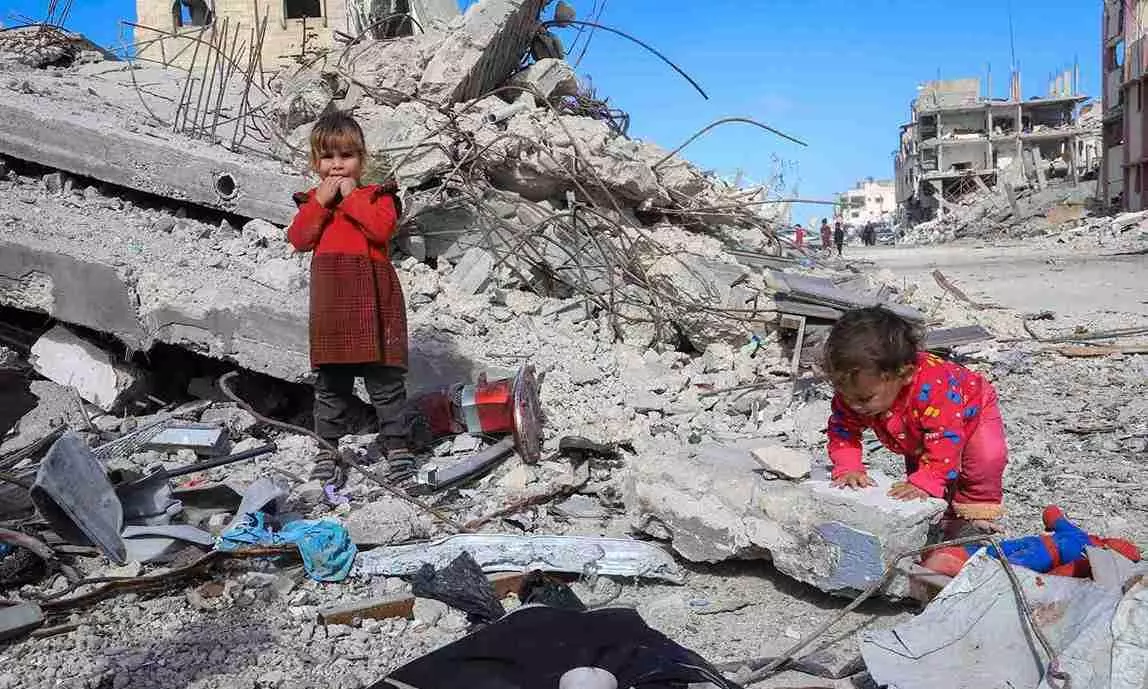
Will topple govt if Gaza war doesn’t resume after ceasefire: Israel minister
Bezalel Smotrich's departure would rob Netanyahu of his parliamentary majority, setting the stage for the government’s collapse and early elections

Even as Gaza received a major influx of aid and goods on the second day of the ceasefire, Israel’s far-right finance minister has threatened to topple Prime Minister Benjamin Netanyahu’s coalition government if he doesn’t resume the war after the first phase of ceasefire expires in six weeks.
Bezalel Smotrich made the threat on Monday (January 20), a day after the ceasefire went into effect. “If, God forbid, the war is not resumed, I will bring the government down,” Smotrich told reporters.
Smotrich, who leads an ultranationalist religious party, voted against the deal but has remained in the governing coalition for the time being. His departure would rob Netanyahu of his parliamentary majority, setting the stage for the government’s collapse and early elections.
Assurance of continued war
Smotrich said he has received assurances that Israel will resume the war after the first phase, during which 33 hostages held in Gaza are to return home and hundreds of Palestinian prisoners are to be freed.
The second phase, which must still be negotiated, is to work out an end to the war and return of all remaining hostages.
Also read: Gaza truce: Hamas hands over 3 Israeli hostages; 90 Palestinians freed
“I insisted, demanded, and received an unequivocal commitment from the prime minister, the minister of defence and the rest of my Cabinet colleagues — we will not stop this war a moment before realising its full goals,” Smotrich said.
Israel’s national security minister Itamar Ben-Gvir has already resigned over the ceasefire agreement.
Netanyahu, hoping to stabilise his fragile coalition, has so far offered the public no guarantees that Israel will proceed to Phase 2 of the agreement.
915 trucks cross into Gaza
On the second day of the ceasefire, 915 trucks crossed into Gaza, the United Nations said.
UN deputy spokesman Farhan Haq said colleagues in Gaza had informed the UN that 915 trucks — significantly higher than the 600 trucks called for in the ceasefire — entered Gaza on Monday, based on information from Israeli authorities and the guarantors of the ceasefire agreement.
UN humanitarian chief Tom Fletcher said Sunday the needs in Gaza are staggering and his office said Monday that aid workers are ramping up the delivery of food, clean water, shelter materials and other essential supplies.
The UN Office for the Coordination of Humanitarian Affairs reported that the more than 2 million people in Gaza, about half of them children, depend on this aid, Haq said.
Also read: Hamas, Israel peace welcome but underlying conflict can undermine deal
The World Health Organization, meanwhile, has a 60-day plan to increase beds and deploy overseas health workers to Gaza hospitals, but some 30,000 Palestinians have life-changing injuries and need specialised care, Haq said.
Palestinian govt ready to take responsibility for Gaza, West Bank
Meanwhile, the Palestinian government has said it is ready to take responsibility for running the Gaza Strip and the West Bank and is committed to managing crossing points in collaboration with the European Union and Egypt.
Palestinian minister of state for foreign affairs, Varsen Aghabekian, told a ministerial meeting of the UN Security Council on Gaza on Monday that the government welcomes any assistance to train and equip the Palestinian police and security forces.
She also called for urgent humanitarian aid.
Hopes for final ceasefire
Aghabekian expressed hope that the six-week ceasefire will lead to a final ceasefire and lay the foundations for a political track to end Israel’s occupation within a year as called for by the International Court of Justice, the UN’s highest tribunal.
Also read: India welcomes Gaza ceasefire, hostage release deal between Israel and Hamas
Israel's political coordinator, Reut Shapir Ben Naftaly, told the council, “This war will not end until every hostage is returned and Hamas’s ability to terrorise is dismantled.”
She said the Middle East stands at “a turning point” where Iran’s proxies Hamas and Hezbollah in Lebanon have suffered “devastating losses” and its “network of terror”, including the Houthis in Yemen, have faced significant setbacks.
Reut Shapir Ben Naftaly, political coordinator at Israel’s UN mission in New York, said Israel has no interest in a conflict with Syria “but we will not tolerate a situation that endangers our civilians, allows Iran to re-establish itself in the region, and transfer weapons to Hezbollah”.
Israeli settlers on the rampage
Even amid the ceasefire, residents of Palestinian villages in the occupied West Bank said Israeli settlers had rampaged through their communities and set a large fire.
Officials in Jinsafut and Al-Funduq, two villages roughly 50 km north of Jerusalem, said that dozens of settlers had attacked homes and local businesses. Jalal Bashir, the head of Jinsafut's village council, said that settlers burned three houses, a nursery and a carpentry shop located on the village's main road.
Also read: If the Gaza ceasefire holds, India should not lag on reconstruction
Northward in Al-Funduq, Louay Tayem, head of the local council, said dozens of Israeli settlers had fired shots, thrown stones at homes and burned cars, homes and shops.
The Palestinian Red Crescent said it treated 12 people who were beaten by settlers. It gave no details on their conditions.
Israel's military said it dispersed the settlers and launched an investigation.
The UN Office for the Coordination of Humanitarian Affairs has reported 1,432 Israeli settler attacks against Palestinians that resulted in casualties or property damage in 2024.
(With agency inputs)

